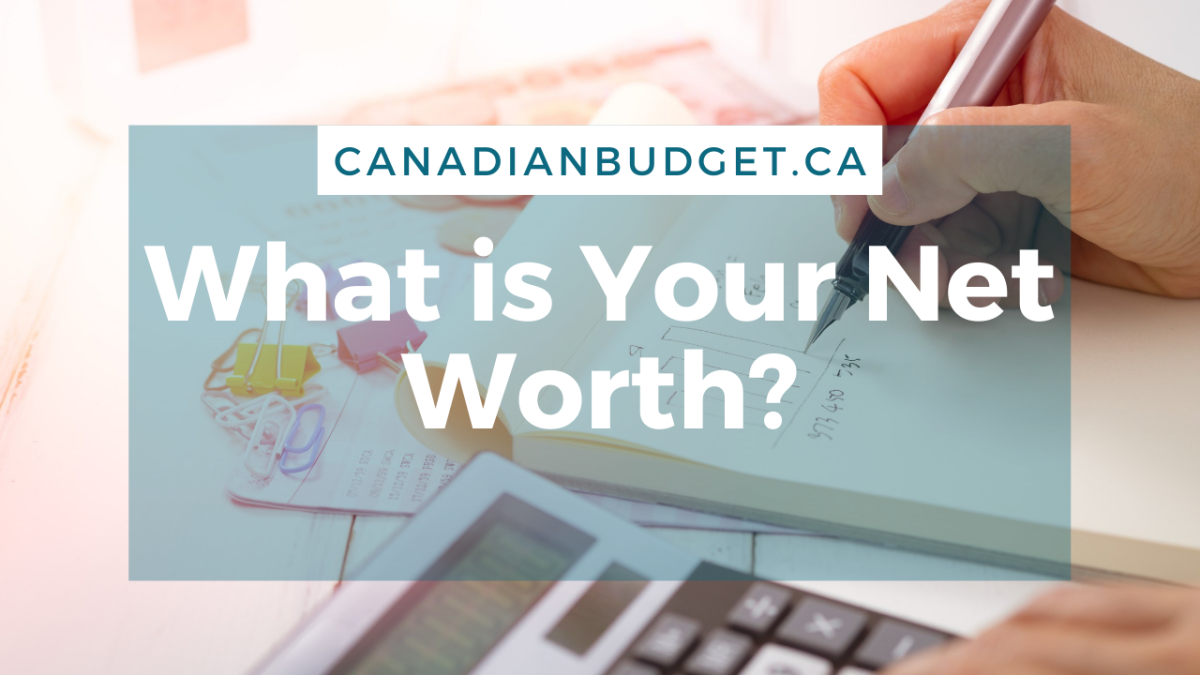
Net worth? What are you worth?
Table of Contents
ToggleNo, this isn’t a hypothetical or philosophical question. Have you ever actually sat down and calculated your net worth? To know where you are going, you have to know where you are starting from!
What is net worth?
Net worth is a simple calculation that give you a dollar number representing the value of your debts and assets. In the net worth calculation we call it assets and liabilities. Assets are something you own, and liabilities are something you owe!
It’s great to set goals, but if you don’t know where you are starting from, its harder to track how far along you are to reaching those goals. The first place to start is to figure out your net worth at this moment in time.
How to calculate net worth
If you are single, this is pretty easy to do. If you are married this means perhaps a sit down with your spouse to go over all finances and list everything together in one place.
You may prefer to do this on paper, in excel, or in a Google Sheet. I personally prefer google since it can be accessed anywhere and you can share documents/sheets with your partner. You can grab a pre-made Net Worth Tracker Spreadsheet here to get started.
Assets
Write down all your Assets – This means your Chequing, Savings, Bank balances, RRSP’s, TFSA’s, Investments etc., and total them up. Include any large items of value. Car, jewelry, pension, anything else that has a monetary value that you own.
Liabilities
The next step is to list all of your liabilities. That is anything your owe. This can include your credit card balances, student loans, car loan, mortgage, line of credit balance, etc. and total those up.
Calculate net worth
Now that you have listed out all of your assets and liabilities. You do simple subtraction. Your net worth is your assets minus your liabilities.
This number is just your starting point. There is no judgment here, so don’t feel bad, no matter the number. For those of you with a mortgage, or students with loans, this likely to be a big scary negative number. Not to worry, it will diminish with time as you pay down your debts and save up more in your assets column.
Hopefully, by doing this, it will help you realize where you may need to prioritize. Do you have a lot of debt? Are you carrying balances on your credit cards? Are your savings on track? Do you have anything stocked away for retirement yet? Have you set your financial goals for the short, medium and long term?
This exercise should help you get a clear picture of your financial situation at the moment. From this you can begin to build on your plans toward a debt free life and continue to build your wealth.
Tracking your progress over time is the only way to really make headway and see the progression from debt to wealth. Wishing you all a rich future life!
More from the blog...
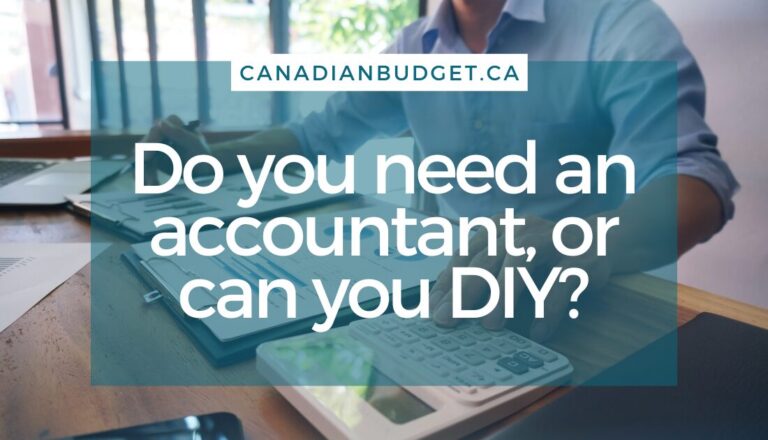
Do You Need an Accountant…
Guest Post by Karan Sachdeva of MultiTaxServices Doing taxes in Canada Money management often feels like one of those “I’ll...
Read More
Why Wealthsimple Could Be the…
Wealthsimple Banking Review 2025: Best No-Fee Bank in Canada
Read More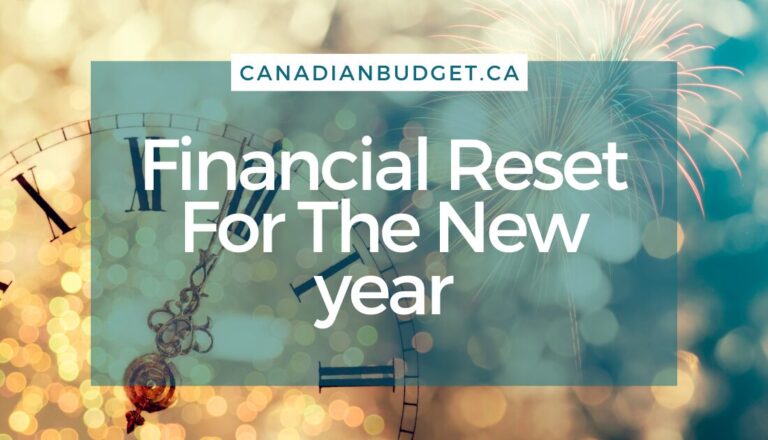
Financial Reset For The New…
How to Do a Financial Reset for the New YearAs the new year begins, it's the perfect time to take...
Read More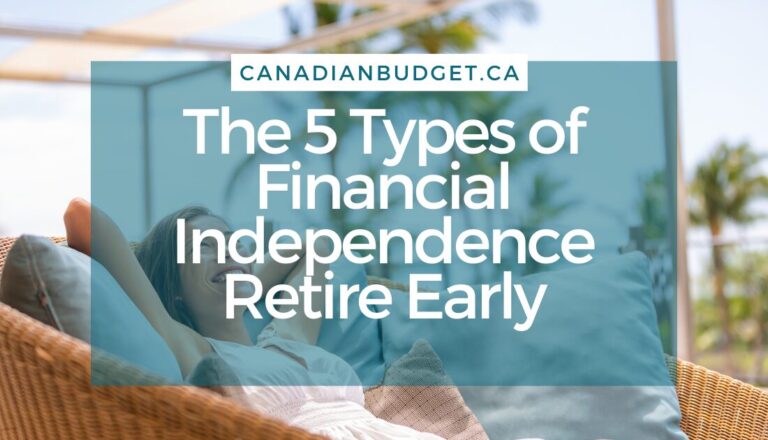
The 5 Types of Financial…
Starting your journey towards Financial Independence Retire Early (FI/RE) in Canada opens up possibilities for those eager to take control...
Read More
In a Public Sector role?…
Public sector roles, including those in schools and hospitals, make up approximately 21% of employment in Canada. That includes teachers...
Read More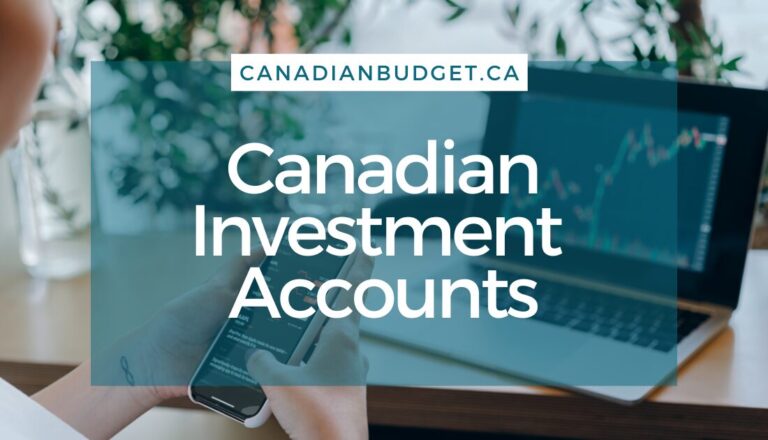
8 Canadian Investment Accounts To…
If you are new to investing, you might be wondering what the Canadian investment accounts are available, and which is...
Read More
What Are Canadian Real Estate…
Canadian Real Estate Investment Trusts: What They Are and Should You Invest? Canadians have heard owning property was the path...
Read More
6 Ways Fixing Credit Scores…
Struggling with debt can significantly impact your financial well-being, especially if your credit score suffers. Fixing credit scores is important...
Read More
The Paying Yourself First Method
Taking control of your financial future starts with a simple yet powerful concept: paying yourself first. Shifting your money mindset...
Read More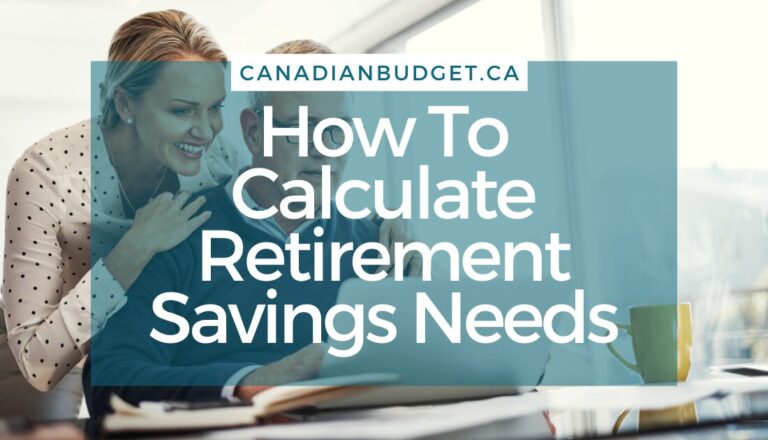
How to Calculate Retirement Savings…
When is a good time to calculate retirement savings needs? When retirement may be decades away it’s hard to think...
Read MoreAbout The Author
Jessica Morgan
Jessica Morgan is the founder and CEO of Canadianbudget.ca. She is passionate about personal finance and helping Canadians improve their financial literacy by providing more Canadian focused financial content. A millennial mom of one, she has a burning obsession with all things personal finance.
Jessica has a BA in East Asian Studies from York University and a Masters in Business Administration from Toronto Metropolitan University. She is a career public sector employee with a Hybrid Pension, and an advocate for Canadian women to improve their personal finance knowledge.
Jessica Morgan
Jessica Morgan is the founder and CEO of Canadianbudget.ca. She is passionate about personal finance and helping Canadians improve their financial literacy by providing more Canadian focused financial content. A millennial mom of one, she has a burning obsession with all things personal finance.
Jessica has a BA in East Asian Studies from York University and a Masters in Business Administration from Toronto Metropolitan University. She is a career public sector employee with a Hybrid Pension, and an advocate for Canadian women to improve their personal finance knowledge.

